What’s coming up in the Swiss parliament’s 2024 winter session
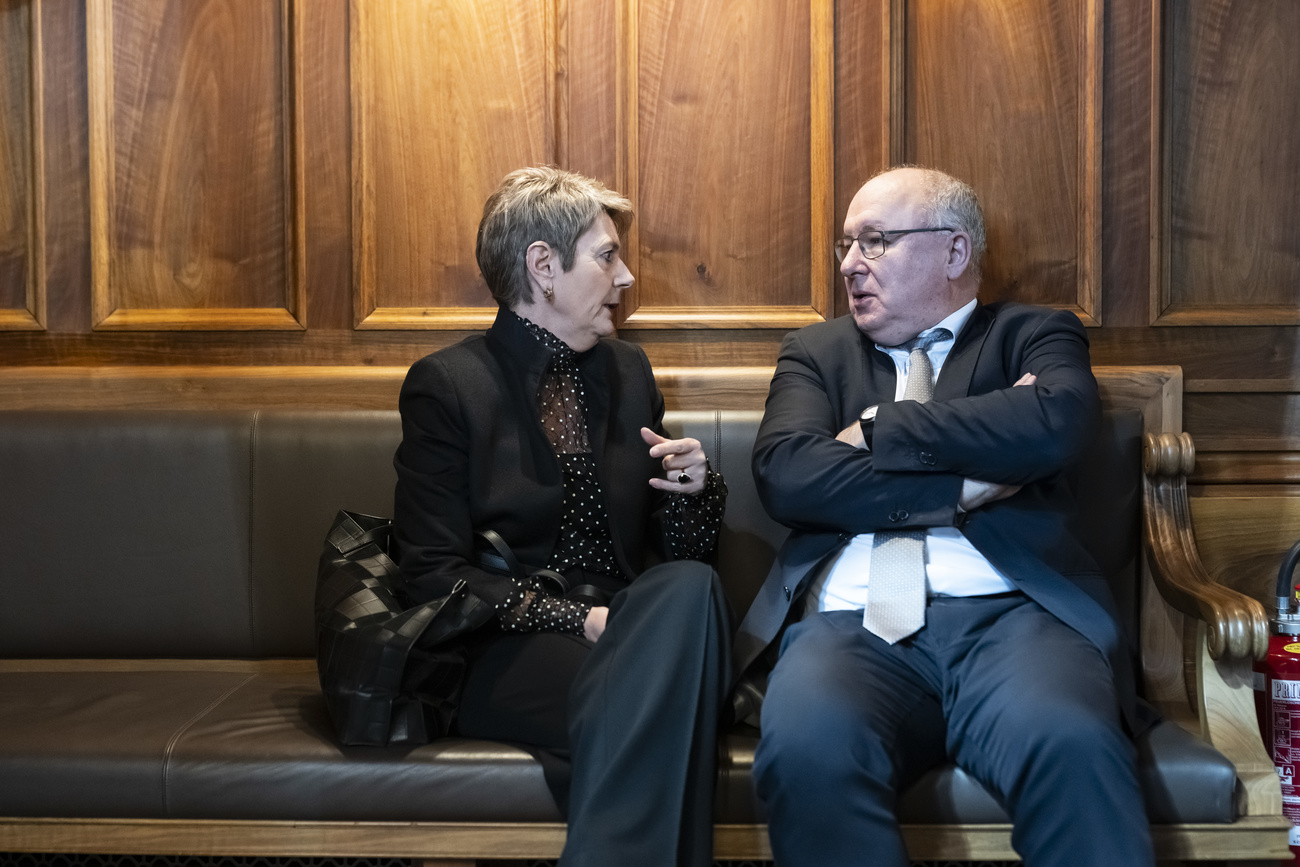
When parliament reconvenes for the winter session, Switzerland's role in the world will be under scrutiny. Fierce budget battles lie ahead. And migration is on the agenda – for centrist parties, as well as those on the right.
The Swiss parliament’s winter session runs from December 2 to 19. Let’s start with the topics that will directly affect the Swiss Abroad.
Issues on the table for Swiss Abroad
Electronic identification: The House of Representatives already voted in favour of the E-IDExternal link in spring. In September, the Senate also adopted the corresponding law. There are still some minor differences regarding data protection and security issues to be resolved in the winter session. The government wants to introduce electronic ID in 2026.
“Electronic identification will make life easier for the Swiss Abroad,” says Ariane Rustichelli, director of the Organisation of the Swiss Abroad.
Family reunification: Another item on the agenda is a matter we have already reported on several times because it would be in the interest of many Swiss nationals abroad: the elimination of discrimination against Swiss nationals when it comes to family reunificationExternal link. The House of Representatives approved the bill, but the Senate rejected it. Now the lower house has to vote on it again.
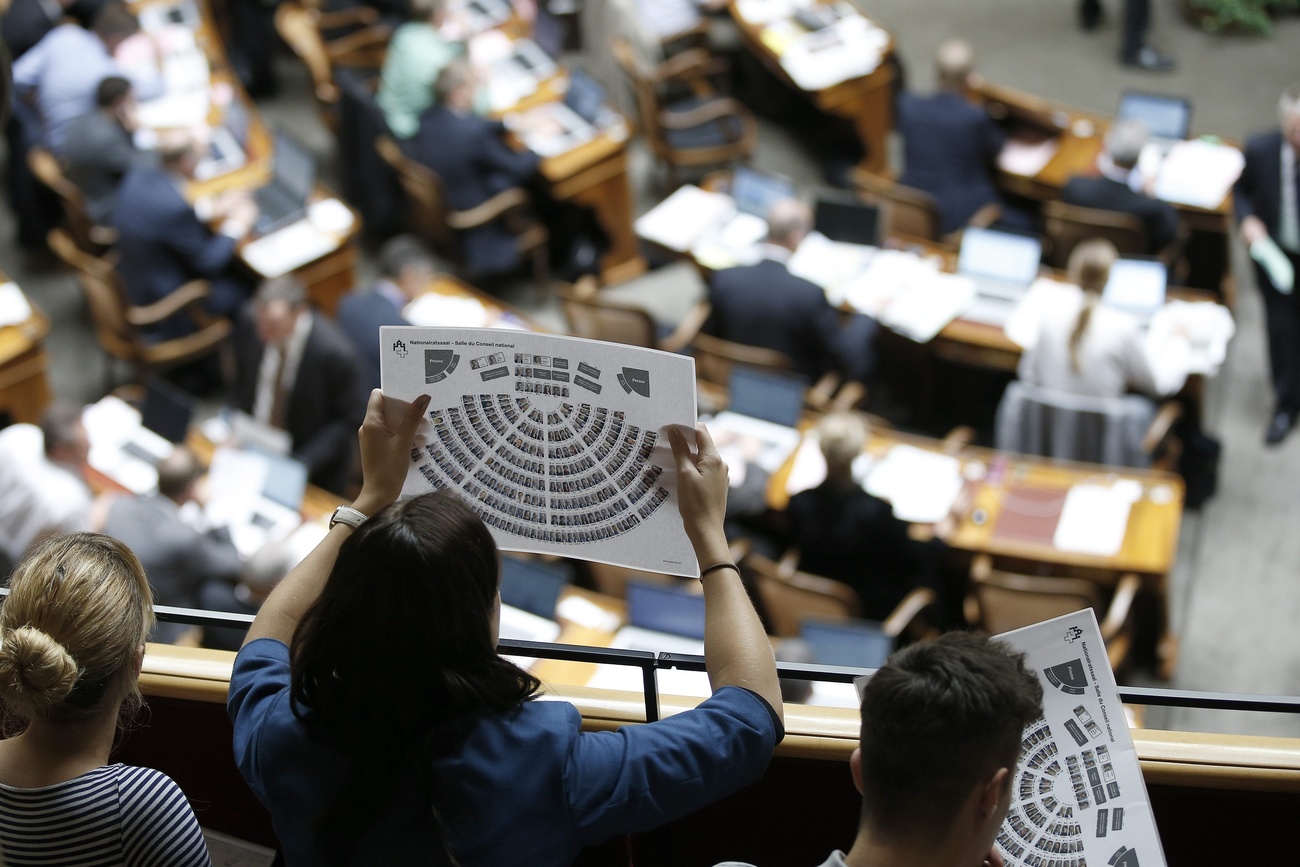
More
The Swiss parliament for beginners
In the Senate, the bill’s potential impact on immigration was the main reason for its rejection. Those concerns have now also led to a change of heart in the House of Representatives’ committee. This means that the proposal, put forward by the Organisation of the Swiss Abroad, is on the brink of failure.
Several votes on migration
UN migration pact: The House of Representatives will discuss whether Switzerland should join the UN migration pactExternal link. The Senate gave its verdict this autumn: a “No”, because it sees no advantages to joining and believes the risks outweigh any advantages. Now the House’s preparatory committee has also said it sees no added value in signing the pact. If the House of Representatives also rejects it, the government will have to write to the UN secretary-general to tell him Switzerland will not be joining. Foreign Minister Ignazio Cassis fears damage to Switzerland’s image on the international stage.
Entry fee for Switzerland: The Swiss People’s Party parliamentary group leader, Thomas Aeschi, wantsExternal link the federal government to demand CHF25 ($28) from foreign nationals entering Switzerland. The proceeds would then be channelled into the old-age and survivors’ pension, known as the AHV/AVS, he proposed.
Aeschi sees this entry fee for Switzerland as a measure to combat mass tourism. He points to Bhutan, which charges a fee of $200 per day. “A CHF25 fee for Switzerland would be financially manageable for tourists,” Aeschi writes in his proposal.
Agreement with Morocco: The House of Representatives is calling for a migration agreementExternal link with Morocco. Asylum applications from people from Morocco, Algeria, Tunisia and Libya have increased in recent years. However, less than 1% of these applications are approved.
While Switzerland already has readmission agreements with Algeria and Tunisia, there is as yet no such agreement with Morocco. The Radical-Liberal senator Damian Müller claims this is necessary because offences committed by people arriving from this region of the world have increased significantly in Switzerland.
Focus on protection status S
End of protection status S: The canton of St. Gallen has launched an explosive initiativeExternal link. It wants to completely abolish temporary protection status S for refugees from Ukraine. “There is growing suspicion that the generous protection status S is being exploited by an increasing number of Roma,” writes the canton of St. Gallen, located on Switzerland’s eastern border. The federal government must act immediately, it adds.
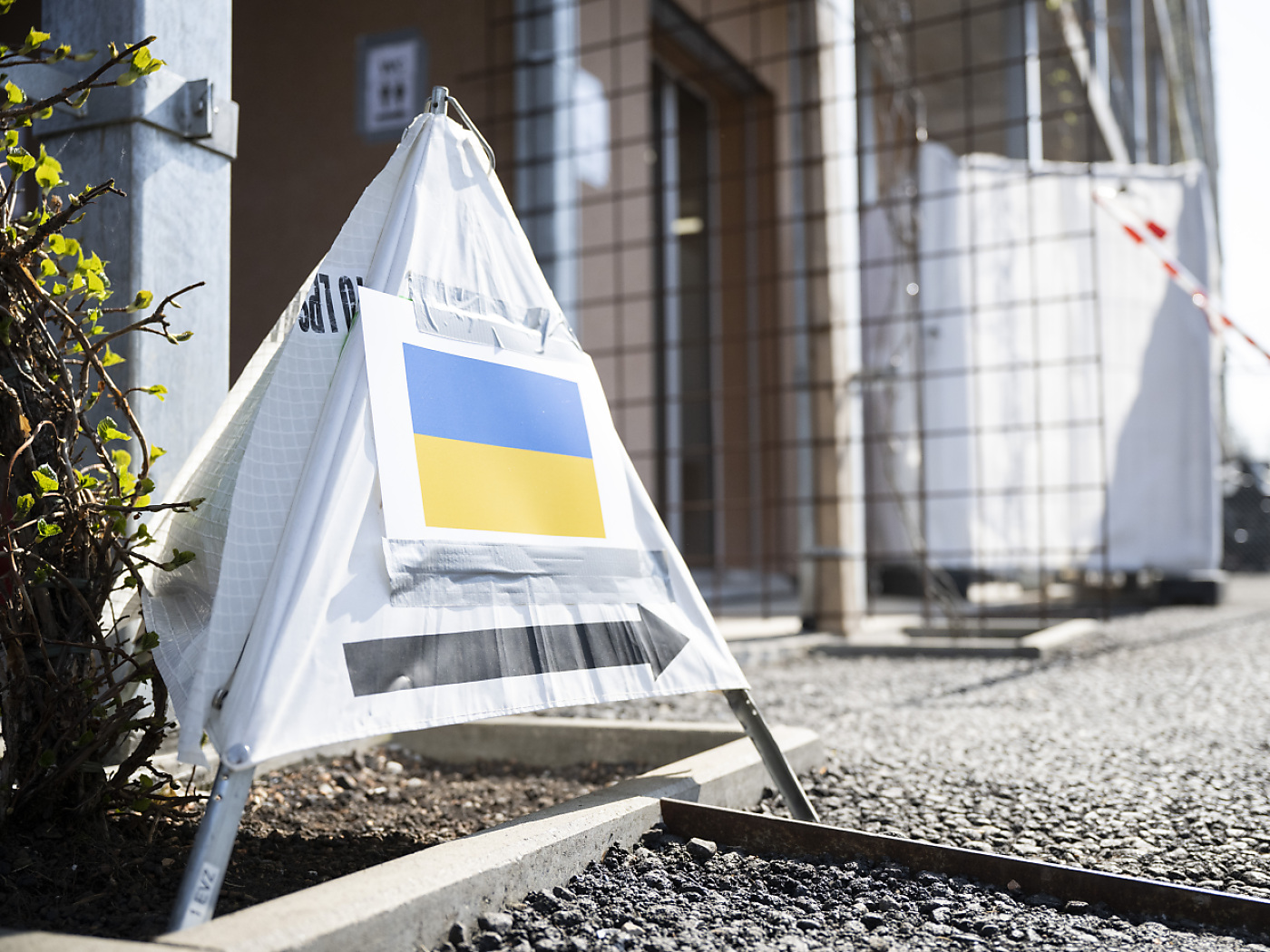
More
Switzerland to extend S status for Ukrainians until March 2026
Further motions on the subject of asylum are pending, particularly in the Senate, including a demand from the CentreExternal link Party that Switzerland should analyse the experiences of other European countries with more restrictive migration measures – and draw lessons from them.
Switzerland in the world
Money for development aid: The international cooperation strategyExternal link for 2025-2028 is being negotiated back and forth between the two chambers. More money for the army, less for development cooperation: this is what the House of Representatives’ finance committee wants. It wants to cut funding for international cooperation by CHF250 million.
The Senate had already proposed cuts of CHF2 billion in development aidExternal link in the summer. The two chambers must now resolve their differences with regard to counter-financing. Internationally, 0.7 % of gross domestic product is the benchmark for development cooperation. Switzerland currently invests around 0.42 %.
Aid for Ukraine: According to the Social Democrats, Liberal Greens and Centre Party, Switzerland could also do more for Ukraine. Measured against its own economic performance, Switzerland transfers a comparatively modest contribution to Ukraine, according to a motionExternal link.
The motion calls for a one-off contribution towards humanitarian aid for Ukraine, the amount of which should be orientated towards other comparable countries. What is special about this is that the request is being submitted in three identical motions by members of the three parties.
The Senate has also tabled a motionExternal link calling for more commitment from Switzerland: more money for humanitarian aid and greater efforts on the diplomatic level.
International conflicts
Banning Hamas and Hezbollah: In September, the government approved a law banning HamasExternal link and referred it to parliament. Hamas and its successor groups are now considered banned terrorist organisations. The House of Representatives will vote on this in the second week of the session.
There is also agreement in the security policy committees of both chambers that Hezbollah should also be bannedExternal link. An initial motion on this will also be submitted to the House.
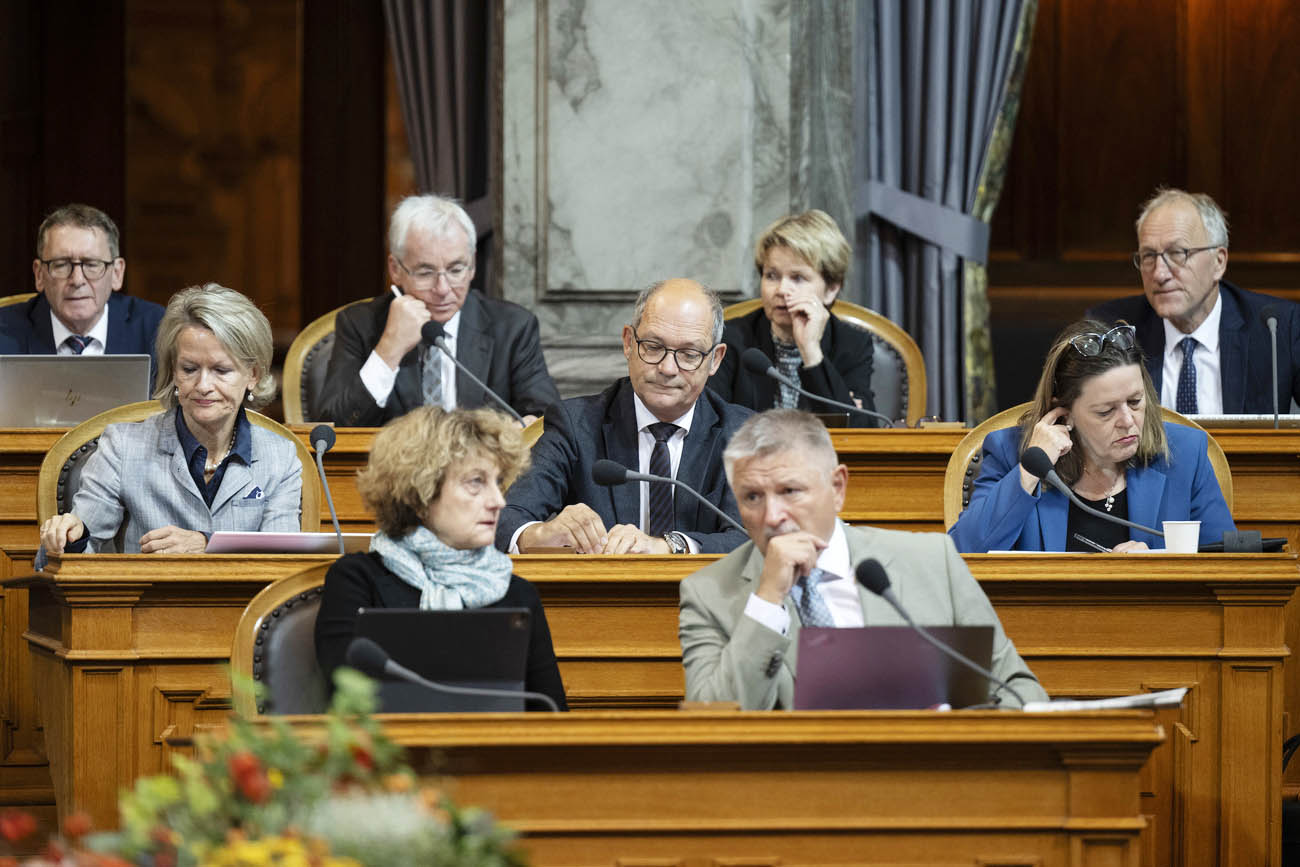
More
Parliament session: an autumn of anxiety
International agreements: The Senate will assess a free trade agreementExternal link that the government has negotiated with India as part of the EFTA (European Free Trade Area) group of countries. No opposition is expected. It is also likely to wave through updated double taxation agreements with Serbia, Angola, Jordan and Germany.
In the winter session, the House of Representatives will also urge the government to extend its China strategyExternal link. Foreign Minister Ignazio Cassis had allowed it to expire. Switzerland is currently negotiating an update to the existing free trade agreement with China. This is controversial. Critics are calling for a nuanced approach and see the China strategy as a suitable means of achieving this.
The battle for the 2025 budget
Debt brake: The winter session provides the framework for the following year’s budget. This year, battles over its distribution are particularly fierce because money is tight. Switzerland is not allowed to go into debt – the debt brake prevents that. However, the army requires more funds and the 13th monthly payment of the old-age and survivors’ pension has not yet been financed.
Where will the money come from? One thing is already certain: the army should have around CHF500 million more at its disposal next year than originally planned. The two relevant parliamentary committees agree on this.
But how this additional expenditure is to be compensated for will still be a topic of discussion in and between the two chambers of parliament. Cuts to the asylum system, to federal personnel and, as mentioned, to foreign aid are under discussion.
Money for which army? The army may be the subject of another debate. The Radical-Liberal senator Josef Dittli is calling on the government to produce a “basic document” on the “objectives and strategic orientationExternal link” of the Swiss Armed Forces. Dittli is considered to be the best expert on the army in parliament.
With his proposal, he is now bringing a simmering debate to the surface: critics complain that although the Swiss army have made clear their considerable needs for resources, they have not yet presented a recognisable defence concept that would allow priorities to be set in times of tight finances. This initiative could add fuel to the debate over the army’s finances.
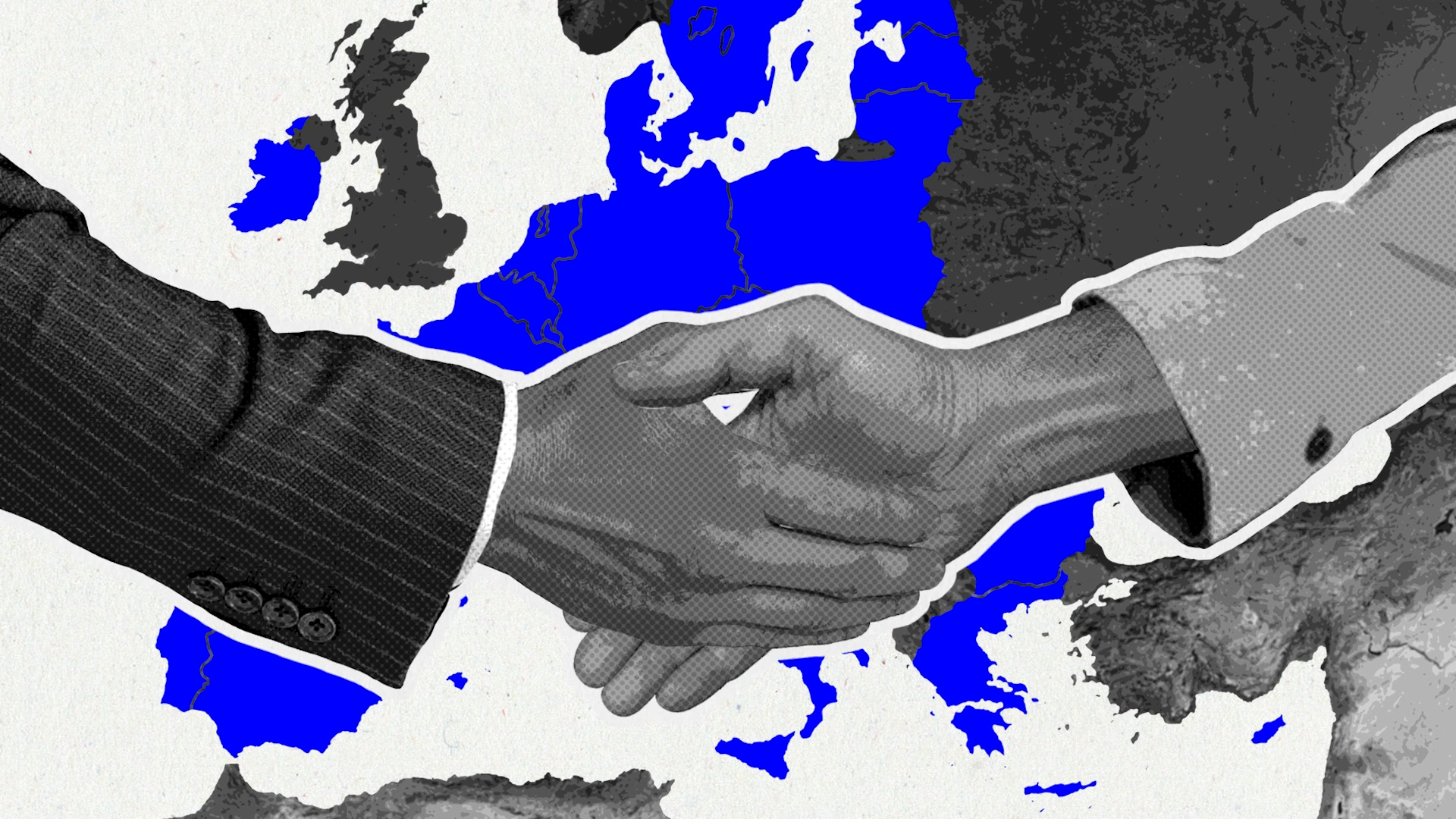
More
The rocky relationship between Switzerland and the European Union
And Europe? In the last week of the winter session, the government is expected to present the results of its negotiations with the European Union. Whatever they look like, they have the potential to turn what happens in parliament into a side-show. On this issue, every party and every member of parliament will want to take a position.
Edited by Samuel Jaberg. Translated from German by Catherine Hickley/gw

More
Newsletters

In compliance with the JTI standards
More: SWI swissinfo.ch certified by the Journalism Trust Initiative

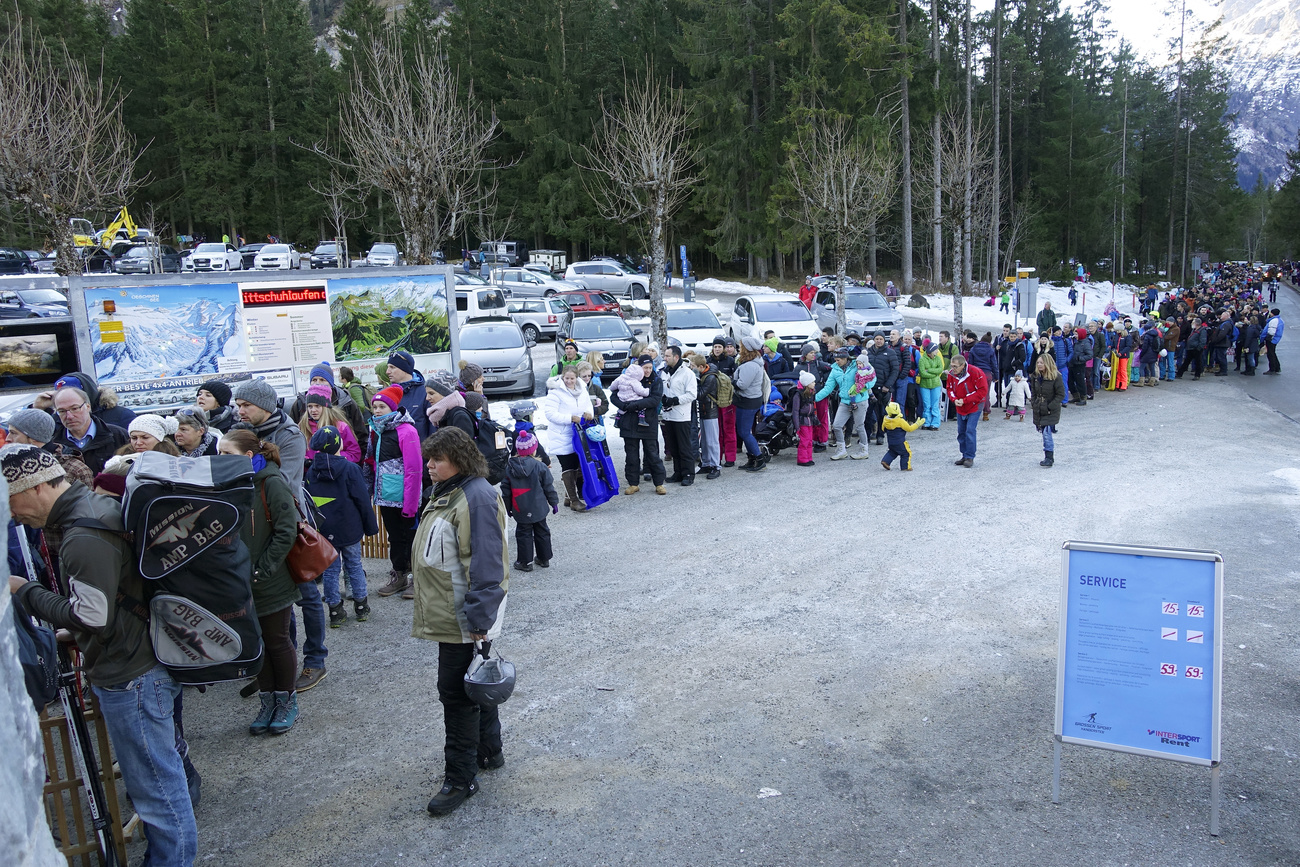








You can find an overview of ongoing debates with our journalists here . Please join us!
If you want to start a conversation about a topic raised in this article or want to report factual errors, email us at english@swissinfo.ch.